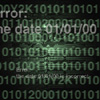Legal News & Trends
Supreme Court, Director of State Courts, and State Law Library move
- temporarily
 The Wisconsin Supreme Court and the Director of
State Courts Office moved out of the Capitol in mid-July to make way for
restoration and renovation of the Capitol's east wing. They are now at
119 Martin Luther King Jr. Blvd. on the capitol square, where they will
remain until 2001. The mailing address remains the same - P.O. Box 1688,
Madison, WI 53701-1688. All telephone and fax numbers and email
addresses are unchanged.
The Wisconsin Supreme Court and the Director of
State Courts Office moved out of the Capitol in mid-July to make way for
restoration and renovation of the Capitol's east wing. They are now at
119 Martin Luther King Jr. Blvd. on the capitol square, where they will
remain until 2001. The mailing address remains the same - P.O. Box 1688,
Madison, WI 53701-1688. All telephone and fax numbers and email
addresses are unchanged.
The Wisconsin State Law Library moved in mid-September. Because the
library's temporary space - in the One East Main building on the capitol
square - will not be ready until Nov. 1 at the earliest, temporary
measures have been implemented:
- In-person and telephone reference services are available at the Dane
County Law Library, 315 City-County Bldg., 210 Martin Luther King Jr.
Blvd. Hours of operation are 8:30 a.m. - 4:30 p.m., Monday through
Friday.
- The library's collection will remain in the Capitol, inaccessible to
the public, until the temporary space is available. The Dane County Law
Library maintains a complete Wisconsin and federal collection. The State
Law Library will continue to operate a daily scheduled service for other
needed materials, including regional reporters, journals, and other
state materials; these materials will be available at the Dane County
Law Library. The library also will continue to operate the document
delivery service.
- Call in advance to request materials and other services. The
library's phone and fax numbers remain the same: (608) 267-9696 or (800)
322-9755 for reference assistance and document delivery; (608) 266-1600
for general library information; and (608) 267-2319 for fax. The
library's mailing address - P.O. Box 7881, Madison, WI 53701-7881 - also
remains the same.
In late April, state officials approved plans for a $35.8 million,
eight-story justice center on the capitol square that will house the Law
Library, Department of Justice, and other offices. Construction should
be completed by August 2001.
CLE reporting deadline is Dec. 31
If you were admitted to practice in an odd-numbered year, you should
have received the 1998-99 CLE Form 1, the biennial continuing legal
education reporting form. All active Wisconsin-licensed attorneys are
required by SCR 31.03 to file this form with the Board of Bar Examiners
(BBE). The filing deadline is Dec. 31, 1999. If you were admitted to
practice in 1999, however, you will not need to report until 2001.
Be sure to verify your address on the form and contact Denise Dettor
at the State Bar at (608) 250-6119 or (800) 444-9404, ext. 6119, if it
is incorrect. In addition, be sure to provide all the requested
information. The BBE audits the forms in the order received and will
communicate directly with lawyers about incomplete or incorrect forms.
If you do not report accurately, and must correct your form after the
filing deadline, you will be assessed a $50 late fee. If you are
concerned about whether the BBE received your CLE Form 1, the BBE's
mailing also included a postcard that can be self-addressed, stamped,
and sent to the BBE. The BBE will return the card showing the date on
which your form was received.
To verify a course title, date, location, sponsor name, or credit
amount, consult the Wisconsin
Supreme Court Web site.
Federal Y2K liability legislation enacted
 Despite threatening to veto Y2K liability legislation
approved by Congress, President Clinton signed compromise legislation
into law on July 20 (Public Law
106-37). The new law limits the liability of companies that do not
adequately address issues resulting from the Y2K computer problem.
Despite threatening to veto Y2K liability legislation
approved by Congress, President Clinton signed compromise legislation
into law on July 20 (Public Law
106-37). The new law limits the liability of companies that do not
adequately address issues resulting from the Y2K computer problem.
In the final compromise, damage caps are set at $250,000 or three
times compensatory damages, whichever is less, and apply to actions
against businesses with fewer than 50 full-time employees and
individuals with a net worth of $500,000 or less. In general, the new
law also limits defendants' liability in a Y2K action to their
proportional share of damages. In its goal of encouraging remediation
over litigation, the new law also creates a "prelitigation notice"
requirement for Y2K issues. The provision creates a grace period that
prospective defendants can use to fix Y2K problems before a prospective
plaintiff can proceed with litigation. The new law generally applies to
Y2K actions brought after Jan. 1, 1999; for Y2K failures occurring
before Jan. 1, 2003; or for Y2K failures that could occur or have
allegedly caused harm or injury prior to Jan. 1, 2003.
Wisconsin Lawyer
